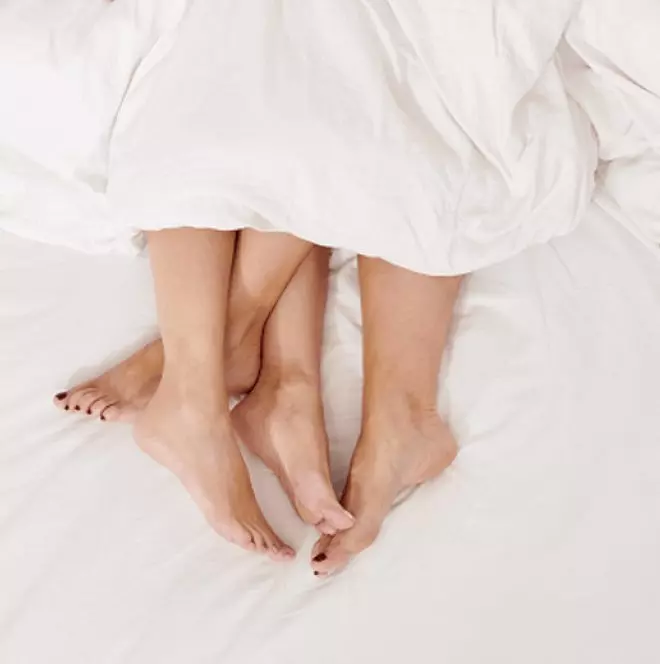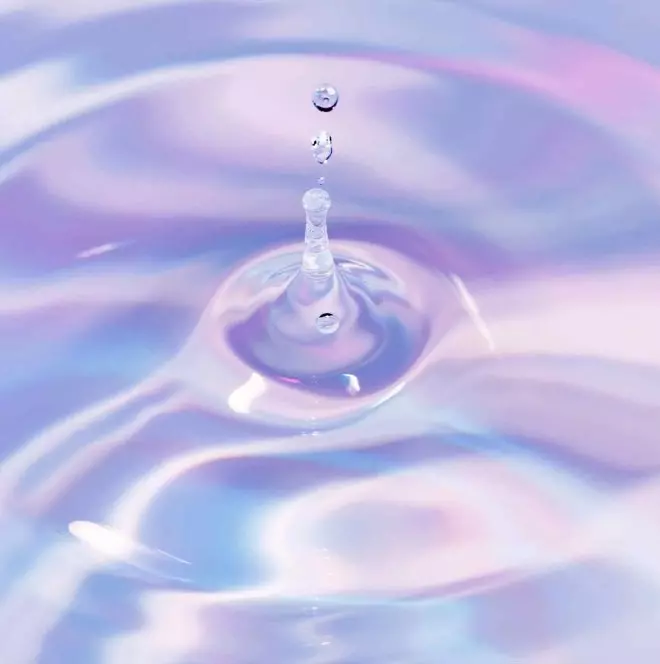
Medication for Vaginal Dryness
You may be embarrassed to ask about vaginal dryness, but there are many effective feminine dryness remedies that can help relieve the symptoms rather quickly. It might come as a surprise to hear that about 50% of women over the age of 50 experience vaginal dryness, 25% of women experience problems with vaginal dryness during sex, and 16% experience vaginal pain.1
Vaginal dryness and itching are pretty hard to ignore. Of all places to feel dry, itchy, and irritated, your vagina is a pretty terrible option. It’s sometimes difficult to ask your doctor what causes vaginal dryness? The answer is - lots of things!
Dryness of the vagina and vulva (outer lips of the vagina) increases during menopause. The decrease in hormones with menopause is a major contributor to vaginal dryness, itching, burning, discomfort, and pain during sex.
‘Vaginal atrophy’ is the medical term that describes these changes in your vagina. While hot flashes can improve as you move through menopause, vaginal atrophy only gets worse and can significantly impact your quality of life. It won't get better without treatment, and it’s not something to ignore.1-15
Vaginal dryness and itching can cause pain when you are sitting, standing, exercising, urinating (peeing), and while having sex. This can occur at any age but is most common in women during menopause. The drop in the hormones estrogen, progesterone, and testosterone with menopause is the most likely cause of these vaginal changes.4
Vaginal dryness can also be a symptom of a variety of medical conditions like a yeast infection, acne medications, hormonal contraceptives, lice, urinary tract infections, and STDs. Waxing/shaving irritation can also upset the natural balance.3
Emotional factors like stress and anxiety can lead to vaginal dryness and decreased lubrication with sex. When a woman is anxious, there is insufficient blood flow to the vagina and that results in dryness and less lubrication.2
The good news is that there are many remedies that will help to prevent and treat vaginal dryness and irritation. Winona offers the most effective hormone replacement therapy which can improve vaginal dryness quickly.
Causes and Symptoms of Vaginal Dryness
Lots and lots of women over the age of 50 experience vaginal dryness and pain during sex. There is a medical explanation for what is going on. Vaginal and Vulvar Atrophy (VVA), also known as genitourinary syndrome of menopause (GSM), is thinning, drying, and inflammation of the vaginal wall. More than half of all menopausal women in the US suffer from this. It is a common cause of vaginal dryness, yet the majority of women are unaware that it is a treatable condition.7-8
VVA/GSM is a result of decreasing estrogen, progesterone, and testosterone levels during menopause. The decreased estrogen makes the vaginal tissue thinner, drier, less elastic, and more fragile. VVA/GSM is a prevalent, chronic, progressive, and painful condition.7-10
Not only is vaginal atrophy bothersome, but it is often combined with urinary symptoms, and can also significantly affect your quality of life, sexual satisfaction, and relationship with a partner. It is important to note that while hot flashes generally improve with time, vaginal symptoms usually get worse because of aging and prolonged lower levels of estrogen.16
Symptoms of vaginal dryness, itching, and atrophy can include:
Vaginal tissues become thin, dry, and less elastic.
Decreased lubrication during sex.
Burning, itching, and stinging sensation in the vagina and around it.
Vaginal dryness, burning, discharge, irritation, and/or itching.
Soreness in and around the vagina.
Frequent urinary tract infections.
Urgency and frequency of urination.
Urinary incontinence.
Discomfort, pain, or burning with urinations (aka Dysuria).
Low sexual desire.
Vaginal pain and/or bleeding with sexual intercourse.
Vaginal infections increase.
There are simple, effective treatments for menopausal women with VVA/GSM who could otherwise continue to suffer in vain from symptoms that can be relieved easily. Of the millions of women suffering from VVA/GSM, only 7% are being treated with prescription therapies that can improve the symptoms quickly.
Women are often hesitant and embarrassed to discuss their symptoms with their doctor and may resign themselves to living with VVA/GSM unnecessarily. In a survey of more than 3,000 menopausal women who had VVA/GVM symptoms, only 50% asked their healthcare provider about their symptoms, and more than half were unaware that any treatment was available!12 It is time to have the conversation and end the unnecessary pain and discomfort.
Essential Remedies for Vaginal Itching and Vaginal Dryness You Can Try At Home
Natural vaginal lubrication is driven by the hormones estrogen, progesterone, and testosterone. These hormones not only play a critical role in the vagina but also in sexual health. They work to keep the walls of the vagina naturally lubricated by stimulating the glands present in the vagina. If you are in your late 30’s, the most likely cause of vaginal dryness and irritation is the drop in hormones.
When estrogen, progesterone, and testosterone levels drop with perimenopause, the lining of the vagina becomes thinner and less elastic, and the glands less effective. Preventing vaginal dryness, itch, irritation, and/or pain during sex (dyspareunia) with hormone replacement is a great form of preventative medicine. It can reduce bladder problems, infections, and other urogenital symptoms.2
The most common and natural way to prevent vaginal dryness and irritation is to replace the estrogen by using topical estrogen creams, patches, or pills. Creams applied directly to the vagina act as a natural moisturizer and replace some of the estrogens at lower doses than if taking oral estrogen pills. Estrogen cream applied directly to the vagina will restore vaginal health and relieve vaginal dryness and discomfort with sex. You will likely notice improvements within a few weeks, but complete relief may take several months. Vaginal estrogen cream therapy is also an effective and safe treatment used two or three nights/week.
Estrogen vaginal cream works directly on vaginal tissue to keep it healthy. Because the estrogen is applied locally, it can be used at a lower dose than estrogen taken orally or when applied through a patch. If vaginal creams aren’t the remedy for vaginal irritation, there are also estrogen patches or pills.
If you choose to take oral estrogen (tablet), the standard doses provided to treat hot flashes will also treat vaginal dryness. Some women may benefit from additional low-dose vaginal estrogen treatment as well. If only vaginal symptoms are present, estrogen cream applied to the vagina is recommended.
There are other prescription therapies provided by Winona. Dehydroepiandrosterone (DHEA) is a hormone-containing treatment for painful intercourse caused by vaginal atrophy. DHEA can be converted into testosterone in the body. But the blood levels do not appear to increase with vaginal use of low-dose DHEA. While it may seem like women don’t need testosterone, they really do! DHEA will slightly increase testosterone levels, just enough to slow the signs of aging, help with thinning, and improve sexual arousal.
Say goodbye to dryness. For Good.

Prevention of Vaginal Dryness and Atrophy
Prevention of vaginal irritation can be as simple as adding estrogen back into the mix. Winona offers vaginal estrogen creams, patches, and pills for this exact purpose.
Urinary incontinence can cause vaginal irritation. Estrogen replacement can often reduce bladder problems, infections, and other urogenital symptoms and thereby decrease vaginal irritation as well. Estrogen creams are a great way to remedy feminine dryness and have been shown to relieve the symptoms, reduce urinary tract infections and incontinence, and improve a woman's quality of life.3
Alternative Treatments to Vaginal Dryness and Atrophy
Vaginal dryness is rarely serious. If estrogen creams or prescriptions are not your natural cure for female dryness, there are other alternative ways to help treat it:
Over-the-counter (OTC) lubricants can be applied to the vaginal area to reduce dryness and discomfort. These lubricants and moisturizing creams can also change the vagina’s pH, reducing the likelihood of getting a urinary tract infection (UTI). Choose a lubricant specifically for vaginal use. Some store-bought lubricants can lead to drying out the vagina, even more, so be sure to look for lubes that promote vaginal hydration.
Have sex! Vaginal irritation and atrophy often result in pain during sex, which can lead to less frequent sex. With less frequent sex the vagina can become shorter, narrower, and less elastic. Pain, narrowing of the vagina, and tightening of vaginal and pelvic muscles can get so bad that sexual intercourse is no longer pleasurable or even possible.
Increase the blood flow - have sex with appropriate lubrication. It is important to have adequate lubrication during sex to prevent infection and trauma to the vagina.
Certain vitamins may help promote natural lubrication like vitamins A, B, and E. These vitamins can also be found in foods like vegetables, nuts, seeds, and healthy fats or supplements.
Women of all ages should be taking daily multivitamins or multimineral supplements that are specific to their age group. Dietary needs change with age, so be sure to find the right supplement for your life stage. Winona offers multivitamins for menopausal women.
Sufficient sleep will improve overall health and help prevent vaginal irritation.
If a yeast infection is the cause of vaginal irritation, OTC treatments should help relieve symptoms quickly.
Refrain from douching. Douching can throw off your body's natural balance and lead to irritation.
Vaginal products shouldn’t contain perfumes, herbal extracts, or artificial colors. These can cause irritation and even contact dermatitis.
Contact dermatitis can occur if using perfumed, herbal, or colored: soap, bubble bath, pads and tampons, condoms and lubricants, shaving products, and even toilet paper. The wrong ingredients can leave you with dried-out, flaky skin or a rash.
For Bacterial Vaginosis, buy an OTC product that increases the pH of the vagina.
Vaginal discomfort due to eczema or psoriasis should be treated in person with your medical provider. A prescription for an oral pill or topical cream may be appropriate.
Sexually transmitted diseases (STDs) don’t always cause vaginal itching or dryness, but it may be a first sign that something is not right. If symptoms progress to sores and pain you should visit your doctor. STDs that are most commonly associated with itchiness are Genital warts, Herpes, Chlamydia (rare), and Gonorrhea.
Eating a balanced diet high in fatty acids may aid in producing additional vaginal lubrication. Raw pumpkin, sesame seeds, sunflower seeds, and fish (especially salmon, mackerel, and tuna) are great choices that are high in fatty acids.
Eating foods high in isoflavones (soybeans, chickpeas, fava beans, pistachios, peanuts, and apples) can help regulate declining estrogen levels during perimenopause.
Drink lots of water. Dehydration can be a cause of vaginal dryness and irritations.
Eat foods that are rich in vitamin D and Calcium.
Maintain a healthy weight.
Exercise - but not just any exercise.
Pelvic floor exercises can strengthen weak vaginal muscles and relax tight ones.
Herbal Treatments and Supplements
Many women use herbal supplements to manage their menopause symptoms. While these herbal supplements are sold widely, Winona does not suggest using them without discussing them thoroughly with your physician. Botanicals and herbs may have side effects, poor oversight, or change how other medications work. The list of alternative therapies include:
Ginseng: (Panax ginseng or Panax quinquefolius) Research has shown that ginseng may help with some menopausal symptoms, such as mood symptoms and sleep disturbances, and with one's overall sense of well-being.
Black Cohosh: (Actaea racemosa, Cimicifuga racemosa) An herb that has received quite a bit of attention for its possible effects on hot flashes. However, studies looking at its effectiveness in reducing menopause symptoms have produced mixed results. Black cohosh has been linked to liver problems. Winona does not offer or recommend Black Cohosh for these reasons.
Red Clover: (Trifolium pratense) There has been no conclusive evidence showing that red clover leaf extract reduces menopause symptoms. Studies have also raised concerns that red clover may have harmful effects. Winona does not offer or recommend Red Clover for these reasons.
Dong Quai: (Angelica sinensis) Dong quai has been used in traditional Chinese Medicine to treat gynecologic conditions for more than 1,200 years. Clinical studies conducted on dong quai have determined that this botanical therapy was not found to be useful in reducing symptoms. Dong quai should never be used by women with fibroids or blood-clotting problems, or by women taking drugs that affect clotting as bleeding complications can result. Winona does not offer or recommend Dong quai for these reasons.
Kava: (Piper methysticum) Kava may decrease anxiety, but there is no evidence that it decreases vaginal dryness. Warning: Kava has been associated with liver disease. The FDA has issued a warning to patients and providers about Kava because of its potential to damage the liver. Winona does not offer or recommend Kava for these reasons.
Evening Primrose Oil: (Oenothera biennis) This botanical is also promoted to relieve hot flashes however, scientific studies found no benefit. Reported side effects include inflammation, problems with blood clotting and the immune system, nausea, and diarrhea. Evening primrose oil should not be used with anticoagulants. Winona does not offer or recommend Evening Primrose Oil for these reasons.
Say goodbye to dryness. For Good.

Summary of Treatment Options Recommended by Winona:
Treatment Options Summary
Hormone Replacement Therapy (prescription required)
Vaginal estrogen therapy - Winona vaginal cream
Estrogen patch
Estrogen oral tablets
DHEA
Lubricants - Over-the-counter vaginal lubricants (non-Rx), particularly for pain with sex.
Moisturizers - Over the counter vaginal moisturizers (nonRx).
Vaginal “exercise”
Sexual activity (with or without a partner).
Stretching exercises with lubricated vaginal dilators.
Pelvic floor physical therapy.
Winona multivitamins are high in vitamins A, B, D, and E + Calcium and are age-specific.
A balanced diet high in fatty acids
Sufficient sleep will all help prevent vaginal irritation.
Ensure there are no underlying health conditions esp. yeast infections, bacterial Vaginosis, eczema or psoriasis, STD’s.
Drink lots of water.
Maintain a healthy weight.
Exercise - but not just any exercise. Pelvic floor exercises.
Summary:
While menopause is a normal phase of life, there are many effective feminine dryness remedies that you can use to treat the often-chronic symptoms such as vaginal itching and dryness. We encourage you to try various treatment options, whether it's hormone replacement therapy (HRT), diet, or lifestyle changes to identify what works best. Remember, menopause is a positive beginning, with the opportunity to take preventive action against major health risks associated with the decreasing hormones caused by menopause.
The good news is that perimenopause and menopause have been studied for over 30 years. Estrogen therapy is one of the most effective dryness remedies or treatments for vaginal itching and dryness.
Whether experiencing severe or minor symptoms, natural remedies like HRT may help ease the vaginal dryness and the irritation that it causes. If women embrace their evolving bodies by providing the hormones and nutrients their body needs, they can move through this precarious phase with grace and wellness. Let Winona walk with you on your menopause journey.
*Please note: Herbal supplements are not regulated, so you don’t know for sure what the ingredients are and how they are produced. Just like other medicines, herbal medicines also have side effects and risks. So talk with your doctor or nurse before you take any herbal supplements. Research hasn’t proven that these therapies are safe or effective. Be aware of any potential interactions of herbal supplements before you try any remedy. Soy products can interact with antidepressants and synthetic estrogen and may increase your risk of other health conditions. Ginseng can cause insomnia and headaches if you take too much of it. If you feel the need to try natural remedies for your perimenopause symptoms, try one at a time and communicate with your physician.
“This article is for informational purposes only and does not constitute medical advice. The information contained herein is not a substitute for professional medical advice. Always talk to your doctor about the risks and benefits of any treatment.”
References:
https://www.womenshealthmag.com/health/a19916630/itchy-vagina/
https://www.everydayhealth.com/sexual-health/vaginal-dryness.aspx
https://www.webmd.com/women/guide/vaginal-dryness-causes-moisturizing-treatments
https://www.insider.com/vitamins-to-increase-female-lubrication
https://www.womens-health-concern.org/help-and-advice/factsheets/vaginal-dryness/
Wysocki S, Kingsberg S, Krychman M. Management of vaginal atrophy: implications from the REVIVE survey.
Clin Med Insights Reprod Health.
2014;8:23-30.
Chen L, Ng M, van der Vlugt TH, Price PH, Orencia A. Statistical considerations for the efficacy assessment of clinical studies of vulvar and vaginal atrophy.
Ther Innov Regul Sci.
2010;44(5):581-5881. Mac Bride MB, Rhodes DJ, Shuster LT. Vulvovaginal atrophy.
Mayo Clin Proc.
2010;85(1):87-94.
The North American Menopause Society. Management of symptomatic vulvovaginal atrophy: 2013 position statement of The North American Menopause Society.
Menopause.
2013;20(9):888-902.
Kingsberg S, Krychman M, Graham S, Bernick B, Mirkin S. The women's EMPOWER survey: identifying women’s perceptions on vulvar and vaginal atrophy (VVA) and treatment.
J Sex Med.
2017;14(2):413-424.
Kingsberg SA, Wysocki S, Magnus L, Krychman ML. Vulvar and vaginal atrophy in postmenopausal women: findings from the REVIVE (Real Women’s Views of Treatment Options for Menopausal Vaginal Changes) survey.
J Sex Med.
2013;10(7):1790-1799.
Parish SJ, Nappi RE, Krychman ML, et al. Impact of vulvovaginal health on postmenopausal women: a review of surveys on symptoms of vulvovaginal atrophy.
Int J Womens Health.
2013;5:437-447. 8. IMS SDI’s Total Patient Tracker; Annual 2016.
https://www.mayoclinic.org/diseases-conditions/vaginal-atrophy/symptoms-causes/syc-20352288
https://my.clevelandclinic.org/health/symptoms/21027-vaginal-dryness/care-and-treatment
https://www.menopause.org/docs/default-source/for-women/mn-vaginal-dryness.pdf



